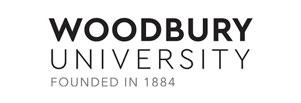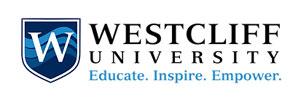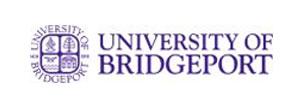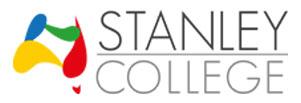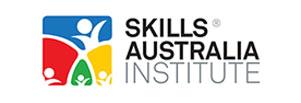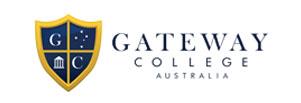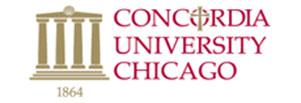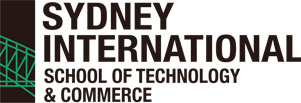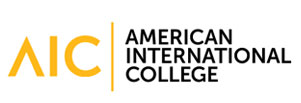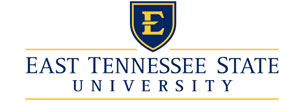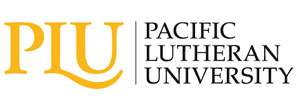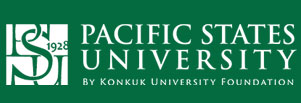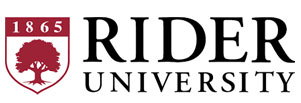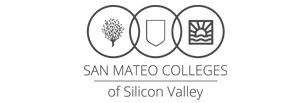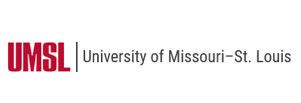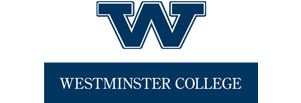
Study in Australia
About Study in Australia
If someone ever told you “Why don’t you study in Australia? It’s an educational hub”, the first thought that would pop in your mind is “Let me find out more about this country”. Well, Australia is a unique geographical entity. This island is a country as well as a continent, located in Oceania between the Indian Ocean and the South Pacific Ocean. Its capital is an island called Canberra and other major cities are Sydney, Brisbane, Melbourne, Perth, and Adelaide which are coastal cities. The major attractions of this country are Sydney Opera House, the Great Barrier Reef, Uluru-Kata Tjuta National Park, Tasmanian Wilderness, a vast interior desert wilderness called the Outback, and a wide variety of distinctive flora and fauna. Australia has a diverse culture and is deemed as a safe and internationally recognized environment for higher education, innovative research, and development. Moreover, Australia has been globally acknowledged as one of the leading providers of quality education to students from all over the world. Being the world’s smallest continent yet the sixth-largest country, Australia encompasses a wide variety of geographical regions, with an estimated land area of 7,686,850 square kilometers (2,967,910 sq mi) (including Lord Howe Island and Macquarie Island). The Australian mainland stretches over a total coastline of 35,877 km (22,293 mi) with an additional 23,859 km (14,825 mi) of island coastlines. There are 758 estuaries around the country most of which are located in the tropical and sub-tropical zones. Australia has the largest area of ocean jurisdiction in the world with no land borders. The current population of Australia is 24,774,248 as of 21st December 2017, the Australian Bureau of Statistics found in its study. In Australia, English is the official language. It is one of the least populous countries in the world. Australians take pride in their friendliness and cultural diversity. The population lives in a generally safe, friendly, sophisticated, and harmonious society. It is predominantly a Christian country; however, Australians are tolerant of all religions. Churches, mosques, temples are located in most major cities; hence all religions are well represented in Australian society. The population of Australia is concentrated along the eastern and southeastern coasts. The country is blessed with extremely diverse geography, ranging from the snow-capped mountains of the Australian Alps and Tasmania to large deserts, tropical and temperate forests. Australian cities tend to have mild climates in comparison to other cities in English-speaking countries. Australia has a low average annual rainfall but high falls occur in the north. Australia is divided politically into 6 states and two territories. The six states and two territories and their capitals are as below respectively: New South Wales (NSW) – Sydney, Queensland(QLD) – Brisbane, South Australia(SA) – Adelaide Tasmania (TAS) – Hobart Victoria (VIC) – Melbourne Western Australia(WA) – Perth Australian Capital Territory (ACT) – Canberra Northern Territory(NT) – DarwinWhy Study in Australia?
- Globally recognized, world-class education at affordable cost
- Thousands of stimulating study programs
- Well-equipped infrastructure, highly professional teaching faculties and friendly environment for study
- Excellent international student support services
- Enrollment only in registered institutions and courses
- Protection of international students by government regulations like the ESOS Act 2000, CRICOS, The National Code
- A safe and politically stable country that welcomes international students
- Part-time working rights for international students
- Multicultural society and very high standard of living
- State-of-the-Art computer laboratories and quality libraries
- Student-centric interpersonal and intrapersonal learning approaches
- One of the growing and expanded business areas of the world
- A variety of high standard student accommodation as per different budgets and needs.
The 10 main advantages of Studying in Australia as cited from PIER online are as below:
1. Value for money
There are various universities in Australia for international students with low tuition fees, hence studying in Australia offers excellent value for money, and this is probably the main reason why international students choose to study in Australia.
Living expenses and tuition costs in Australia are considerably less expensive than the United Kingdom (UK) and the United States of America (USA).
In addition, earning a bachelor degree takes 3 years in Australia compared to 4 years in the US
2. Society and Environment:
Multicultural: More than 100 ethnic groups are represented in Australia; making it one of the most culturally diverse countries in the world. 47% of the population are either born outside of Australia or have one parent born outside of Australia hence there are mixed influences.
Safe: Australia has low crime rates and strict gun control laws that provide a safe environment. Study plans and progress are quite unlikely to be upset by political unrest.
Welcoming: Australians are laid-back and friendly people so students usually find them quite welcoming. Many students living in homestay situations experience Australian family life in a natural way and often find they are treated as a family member.
Unique Environment and Experiences: From beaches in summer to snowfields in winter, and coastal rainforests to vast inland deserts, Australia is a land of contrasts and adventure. Students can experience exciting leisure and sporting activities such as bushwalking, diving, surfing, and rock-climbing, etc.
3. Qualification Recognition
Australian qualifications are recognized in and outside the country when students seek employment or consider further study at leading international universities. The Australian Qualifications Framework (AQF) covers most courses and training undertaken by international students there. The AQF is a national system of learning pathways, which is sanctioned by the Australian Government and recognized by other countries as well.
4. English Speaking Country
What better way to learn English than in an English speaking country?
These are some reasons why this can be worthwhile:
- English opens doors to a wide range of study options and a wider range of international careers, being “the current lingua franca of international business, science, technology, and aviation.
- Students can improve their English proficiency while studying in Australia. Learning to use English can be an enjoyable experience that develops a student’s self-confidence.
- Learning English enables greater social interaction and for students to meet people and make friends from all over the world.
- Students can obtain recognition of their ability (e.g. by taking an IELTS or TOEFL test)
- With a multicultural mix in educational facilities, students learn the world’s language in a truly international environment.
5. Excellence
There are over 1,200 institutions and over 22,000 courses on offer for International students considering Australia as a destination. Importantly, education institutions there have an international reputation for excellence in many disciplines with a lot of options to study in Australia with scholarship.
6. Quality Assurance
International students who study in Australia and their dependants enjoy a high level of service and financial protection. Quality is assured in a number of ways:
Registration
Institutions must be registered with the Australian Government and meet special registration conditions.
Standard
Both public and private institutions are subjected to scrutiny and must meet high standards of quality and ethical practice, which take into account issues such as:
- curriculum;
- qualifications of teaching staff;
- Facilities including specialist equipment.
Process
Quality assurance processes in education and training in Australia are strengthened by:
- The Australian Quality Training Framework (AQTF);
- The Tertiary Education Quality and Standards Agency (TEQSA);
- The Australian Skills Quality Agency (ASQA)
- The Tuition Protection Service (TPS)
7. Student Support Services
Australian institutions are sensitive to religious and cultural needs and provide a range of support and monitoring services to help deal with settling into a new environment, the practicalities of living in Australia, and completing studies.
In the past decade, there have been a vast number of students who chose to study in Australia from Nepal and listed below are some of the excellent range of services supporting the personal and academic achievements of international students in Australia:
- Language tuition;
- Designated international student advisers:
- Application and visa-processing assistance;
- On-arrival reception and orientation programs;
- Health, counseling, accommodation and employment services;
- Student Accommodation Officers;
- Prayer and worship room;
- Clubs, societies, sport, and other facilities.
Student Welcome Services provides an all-inclusive pre and post-arrival online orientation program to ascertain that international students have the opportunity to learn and understand the issues relating to living and studying in Australia.
8. Accommodation Options
A variety of student accommodation is available to cater to every budget and need. Institutions usually provide students with help in finding accommodation and understanding lease and tenancy conditions. Temporary accommodation can also be arranged before they leave home, allowing time on arrival to consider where and how they would like to be accommodated in the longer term. Student notice boards and newspapers often advertise rooms, apartments, and houses for rent. The accommodation options are as follows:
- Home Stay
- Hostels and Guest Houses
- Share Accommodation/Rental Accommodation
- Boarding Schools
- University Apartments, Colleges and Halls of Residence
9. Ability to Work:
During the Studies
As a study destination, Australia is very appealing to students since they are allowed to work to supplement their income. International students studying in Australia are only allowed to work once they commence their course. A Student visa holder is subject to work condition 8105 which permits the student to work 40 hours per fortnight* while their course is in session and unlimited hours while their course is not in session;
* Postgraduate Research students can work unlimited hours once their course commences.
Dependants
Dependants of student visa holders are permitted to work in Australia for 40 hours per fortnight once the student has commenced their course. If the student’s course of study is a course for the award of a master’s or doctorate degree registered on the Commonwealth Register of Institutions and Courses of Overseas Students, a dependant may work unlimited hours.
10. Post-Study Work Rights
The Post-Study Work stream of the Temporary Graduate visa (subclass 485) presents extended opportunities for working in Australia to eligible graduates with a higher education degree. Under this stream, successful applicants are granted a visa of two, three, or four year’s duration, depending on the highest educational qualification they have obtained.
For further details visit DIBP.
Source: Education Agent Training Course by PIER (http://eatc.com)
Education System in Australia
The high living standards, globally recognized world-class education and friendly nature of the people have made ‘Study in Australia’ a rage among international students. Being the third most lucrative destinations for abroad studies, many students enquire about the best consultancy in Nepal for Australia year after year.
Australian universities feature in 8 out of 100 top universities and 21 out of 500 top universities. Also, 5 out of 30 best student cities in the world are in Australia. Students get exposed to a hybrid way of study with a combination of academic and professional qualifications, with the help of well-equipped infrastructure and highly qualified teaching faculties in a friendly environment.
There is a wide variety of courses being offered at all graduate, undergraduate, and diploma levels to meet most aspirations and requirements of international students. The curriculum is the latest while the faculty is up-to-date, result-oriented, and progressive in outlook.
Universities – Offer Graduate, Certificate, Graduate Diploma, Masters, and Ph.D.
Vocational institutions – Both government and private funded closely associated with various industries offer highly practical and skill-based courses.
Schools – Both government and private funded
QUALIFICATIONS OFFERED
- Doctoral Degree
- Master’s Degree
- Graduate Diploma
- Graduate Certificate
- Bachelor Degree
- Associate Degree
- Advanced Diploma
- Vocational Graduate Diploma
- Vocational Graduate Certificate
- Advanced Diploma
- Diploma
Cost of Education in Australia
Cost of education per year
- VET Course: AU$5,500 to 18,000/-*
- Bachelor’s Degree: AU$: 15,000 to 33,000 *
- Graduate Diplomas, Masters & Doctoral: AU$15,000/- to AU$37,000/-*
*Fees given are of informative nature, may vary from university to university.
Cost of living per year
- Applicant: AUD 21,041
- Partner/Spouse: AUD 7,362
- Child: AUD 3,152
Admission Intakes in Australia
Australia generally has Two Intakes i.e. February and July, with few Universities offering multiple intakes in September and November as well. But Vocational Courses generally have the intakes almost every month.
University Education in Australia
There are 43 universities in Australia, of which 2 are private (Bond and Notre Dame) and 2 international universities. In addition, Carnegie Mellon and University College London have campuses in Adelaide, South Australia. Since the main campuses and administrations of these universities are established in other countries; they are considered as non-Australian universities.
Universities are situated in all major State and Territory capital cities as well as in many regional centers. The locations of their main campuses are given in the table below:
| State / Territory | University Name | Location of the main campus |
Australian Capital Territory
| The Australian National University | Canberra |
| University of Canberra | Canberra | |
| New South Wales | Australian Catholic University | Sydney |
| Charles Sturt University | Albury-Wodonga | |
| Macquarie University | Sydney | |
| Southern Cross University | Lismore | |
| The University of Newcastle | Newcastle | |
| The University of New England | Armidale | |
| The University of New South Wales | Sydney | |
| The University of Sydney | Sydney | |
| University of Technology Sydney | Sydney | |
| University of Western Sydney | Sydney | |
| University of Wollongong | Wollongong | |
| Northern Territory | Charles Darwin University | Darwin |
| Queensland | Bond University | Gold Coast |
| Central Queensland University | Rockhampton | |
| Griffith University | Brisbane | |
| James Cook University | Townsville, Cairns | |
| Queensland University of Technology | Brisbane | |
| The University of Queensland | Brisbane | |
| University of Southern Queensland | Toowoomba | |
| University of the Sunshine Coast | Maroochydore | |
| South Australia | The University of Adelaide | Adelaide |
| Flinders University | Adelaide | |
| University of South Australia | Adelaide | |
| Tasmania | University of Tasmania | Hobart |
| Victoria | Deakin University | Geelong |
| La Trobe University | Melbourne | |
| Monash University | Melbourne | |
| Royal Melbourne Institute of Technology | Melbourne | |
| Swinburne University of Technology | Melbourne | |
| University of Ballarat | Ballarat | |
| The University of Melbourne | Melbourne | |
| Victoria University | Melbourne | |
| Western Australia | Curtin University of Technology | Perth |
| Edith Cowan University | Perth | |
| Edith Cowan University | Perth | |
| The University of Western Australia | Perth | |
| The University of Notre Dame | Fremantle |
Required English Tests in Australia
- TOEFL: Test of English as a Foreign Language (TOEFL)
- IELTS: International English Language Testing System
- PTE: Pearson Test of English (Academic)
- C1 Advanced, Formerly Cambridge English: Advanced (CAE)
Student Visa Work Rights in Australia
- Part time work right – 40 hours per fort night when the courses in session and full time work rights for spouse for Masters, PhD and post-doctoral programs
- Bachelors 2 years stay back
- Masters by course work 2 years can be extended by 2 years
- Masters by research (3 years )up to 3 years & PhD students – up to 4 years
Note: Study resulting in a diploma level qualification or trade qualification is not eligible.
Useful Links for International Students in Australia
General information about living and studying in Australia are as below :
- Study in Australia – information about living and studying in Australia: www.studyinaustralia.gov.au
- Study Melbourne – the Study Melbourne Student Centre (SMSC) is a ‘one-stop-shop’ where international students in Victoria can access a range of free support, information and welfare services: www.studymelbourne.vic.gov.au/help-and-advice/support-services/study-melbourne-student-centre
- Study Sydney – information on studying, living and working in Sydney: http://www.study.sydney/
- Study Queensland – information on studying, living and working in Queensland: http://www.studyqueensland.qld.gov.au/
- Brisbane Student Hub: https://mdaltd.org.au/brisbanestudenthub/
- Gold Coast Student Hub: https://www.goldcoaststudenthub.com/
- Study Adelaide – information on studying, living and working in Adelaide: https://studyadelaide.com/
- Study Perth – information on studying, living and working in Perth: https://www.studyperth.com.au/
- Study NT – information on studying, living and working in Australia’s Northern Territory: http://www.studynt.nt.gov.au/
- Study Tasmania – information on studying and living in Tasmania: http://study.tas.gov.au/
- My Future – career information and resources provided as a joint initiative of the Commonwealth, state and territory governments: https://www.myfuture.edu.au
The legal framework for international students in Australia
- Commonwealth Register of Institutions and Courses for Overseas Students (CRICOS) – all the education providers who are registered to teach overseas students in Australia: http://cricos.education.gov.au/
- Education Services for Overseas Students (ESOS) framework – factsheets about the Education Services for Overseas Students framework: https://internationaleducation.gov.au/regulatory-information/pages/regulatoryinformation.aspx
- Tuition Protection Service – assists international students whose education providers are unable to fully deliver their course of study: www.tps.gov.au
- Department of Home Affairs – student visa information: http://www.homeaffairs.gov.au/Trav/Stud
Protecting your human, legal and consumer rights
- Fair Work Ombudsman – takes complaints about work rights and breaches of workplace laws www.fairwork.gov.au/
- Sydney: Redfern Legal Centre International Students Legal Advice Service – http://rlc.org.au/our-services/international-students
- Queensland: Caxton Legal Centre inc. – runs a consumer law service. You can get advice about debts, consumer credit or problems with service providers including your education service provider. https://caxton.org.au/index.html
- Victoria: Consumer Affairs Victoria– provides information for international students about renting in Victoria, and general consumer rights: https://www.consumer.vic.gov.au/internationalstudents
- Australian Competition and Consumer Commission – ensures that individuals and businesses comply with Australian Competition, fair trading, and consumer protection laws: www.accc.gov.au
- Australian Human Rights Commission – promotes and protects human rights in Australia, including rights against sexual discrimination and harassment: www.humanrights.gov.au
Organizations representing international students:
- Australian Federation of International Students (AFIS) – unites international students in Victoria and addresses their interests and needs: www.afis.org.au
- Council for International Students Australia (CISA) – the national peak student representative body for international students studying at postgraduate, undergraduate, private college, TAFE, ELICOS and foundation levels: www.cisa.edu.au
Organizations representing education providers:
- The Australian Council of Private Education and Training – represents quality private education providers in Australia across all education sectors: www.acpet.edu.au
- English Australia is the national peak body for the English language sector of international education in Australia: www.englishaustralia.com.au
Other Ombudsman services
- State and Territory Ombudsman’s offices – take complaints about public education providers in Australia: http://www.ombudsman.gov.au/about/our-history/state-and-territory-ombudsmen
- The Training Advocate in South Australia – If you are an international student in South Australia, the Office of the Training Advocate can provide you with independent advice or guidance about all aspects of living, working, or studying in South Australia. http://www.trainingadvocate.sa.gov.au/home/international-students
Source:https://www.ombudsman.gov.au/How-we-can-help/overseas-students/useful-links
Scholarship in Australia
We are in the process of uploading the latest scholarship schemes available in Australian educational providers very shortly. If you are in urgent need of it, kindly Contact Us
" An Authorized Representative of 350+ Top International Universities Across 10+ Countries Globally With Upto 100% Scholarship "
What Our Student Say






















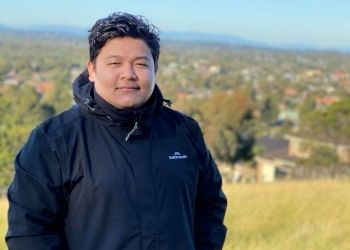







Professional Accreditation & Memberships



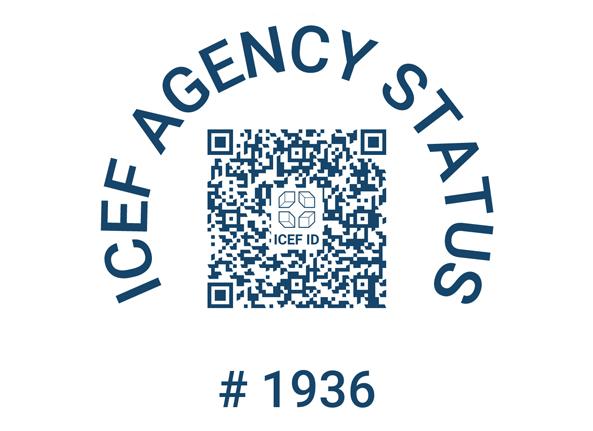
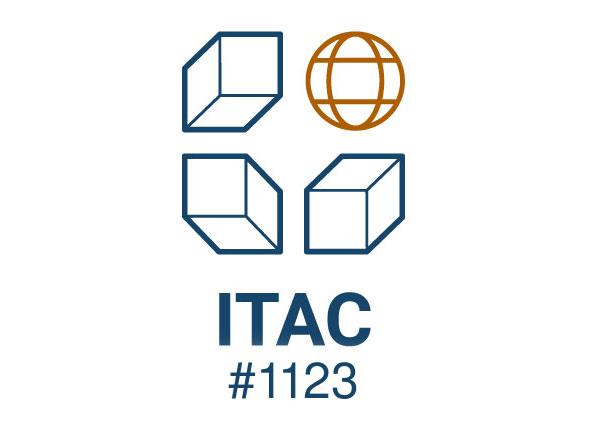

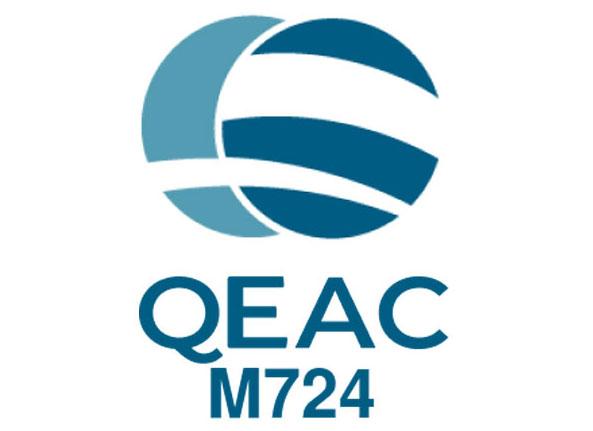


Student's Voice
Voices of students and parents.


